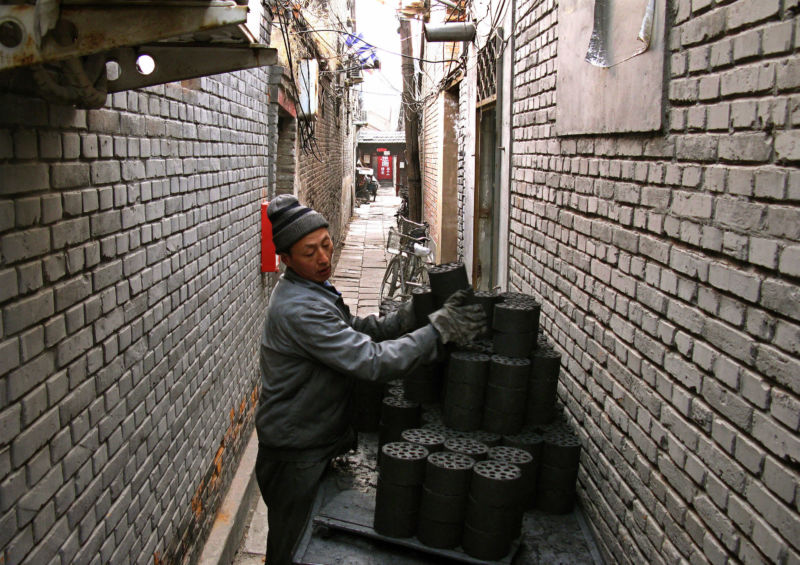In China, replacing coal and biomass stoves has saved lives

Enlarge / A vendor delivers coal briquettes which are mostly used to fuel small coal burners for heating and cooking for low-income homes and restaurants, in an old hutong neighborhood in Beijing, 26 December 2007. (credit: Teh Eng Koon/AFP/Getty Images)
In China, coal and biomass like wood chips and sawdust are burned for cooking and heating. The resulting household pollution has contributed significantly to China's poor air quality. But between 2005 and 2015, China's population moved to urban centers and grew wealthier. More and more people were able to switch their cooking and heating to natural gas- and electricity-powered appliances. Now, researchers from Tsinghua University in Beijing and the University of California Berkeley say that the shift likely saves about 400,000 lives annually.
Research published this week showed that population-weighted exposure to fine-particle pollution in Chinese households decreased by nearly half between 2005 and 2015. Ninety percent of that decrease came from changes in cookstove and heating technology. These changes avoided 400,000 premature deaths from particulate exposure annually, because fine-particle pollution is strongly linked to premature death in people with lung or heart disease, and it causes a host of other lung and heart problems.
Invisible hand of healthWhat's interesting is that these positive changes happened without any government intervention; they were unintended consequences of a booming economy. That means there's a lot of room left for further improvements. As of 2015, household fuels still accounted for 43 percent of the fine-particulate-related mortality in China, as solid fuels like coal and biomass haven't been completely eliminated. They're especially prevalent in low-income households and in rural areas where natural gas and electricity service is nonexistent.
Read 7 remaining paragraphs | Comments